
As a self-confessed “serial entrepreneur”, news that Sir Stelios Haji-Ioannou was adding another business to his ‘Easy’ stable came as no surprise - but that was before he expressed grandiose plans to undercut the likes of Aldi and Lidl with a discounter grocery retail chain called EasyFoodstore.
Sir Stelios is no ‘easy’ customer and certainly doesn’t shy away from confrontation. Boardroom bust-ups leading to a defeat by EasyJet’s shareholders over £8.6bn of capital expenditure and a libel trial are part and parcel of doing business for the billionaire Cypriot. Yet he still felt the thrust from EasyJet’s soaring share price - increasing his personal wealth by £685m - from his 37% stake. So he’s not short of cash.
But can he really create a grocery business? What exactly are his plans (“press speculation has been somewhat wide of the mark,” he wrote on his new Easyfoodstore website this week)? And is there a gap in the market, or is this one venture destined to crash and burn?
The inspiration for his new venture was “sparked by the widespread use of food banks by the needy”, Stelios explained on the website. “I have a feeling there is a gap in the food retail market - a niche below some of the current budget operators such as Aldi and Lidl.”
But while insisting it is “still early days”, a “low-risk” 2,300 sq ft pilot store will open by November, The Grocer understands, on the ground floor of a 1960s former office block in East Croydon station, purchased by the EasyGroup - Stelios’ parent company for all his Easy brands - three months ago.

The former Metlife building is also earmarked for office space, a hotel and a gym, all carrying the Easy brand.
“It’s not going to be anything like a Tesco or Sainsbury’s, there will be an element of pile it high and sell it cheap,” a spokesman for Stelios says.
“The interior will be minimalist and there’ll be plenty of orange and white.” At least a dozen suppliers have approached Stelios already, including several from abroad: “The phone has been ringing off the hook with offers of other property,” he adds.
As to the offer, EasyFoodstore will stock around 100 products - mostly tinned and packaged goods, plus possibly eggs and bread, the spokesman says.
“Basic foodstuffs such as tinned goods, sweet and savoury items, tinned meats, packaged food, tea, coffee, biscuits, salt, pepper, maybe non-brand cola,” he says.
“They’ll be unknown brands you’ve never heard of, sourced from whoever’s offering a good product at a good price”
EasyGroup spokesman
Although Sir Stelios promised, in his note, to concentrate on “affordable, basic, ‘no-brand-name’ foods at bargain prices”, that doesn’t mean Easy beans on Easy toast, as own label has been ruled out.
“They’ll be unknown brands you’ve never heard of, sourced from whoever’s offering a good product at a good price,” the spokesman says.
And despite media reports suggesting that EasyFoodstore will sell alcohol, fresh produce, or meat & poultry, a simple supply chain will be the order of the day. “We would not want anything that requires refrigeration or frozen. There is an outside possibility we might do eggs or bread, but not milk, cheese or meat.”
Even with such a simple product line-up, and a low-maintenance supply chain, suppliers are curious to know how Stelios intends to undercut the likes of Aldi and Lidl.
“It’s something we’re very interested to talk to him about and anything that can widen the marketplace is a good thing,” says Alan Saywell, MD for discount wholesaler Rowan.
But to survive in the discount market, you need buying power and scale, he warns.
“You have to have deep pockets or to partner with somebody else in the sector. He won’t get cheap enough prices without a partner.
“It’s not an impossible task, it’s a challenging task, and one he is right to tackle,” he adds.
Ugo
If Sir Stelios needs proof of how challenging the task is, however, he should look no further than Ugo.
Two years ago Haldanes launched Ugo, a 20-strong chain of discounter stores it picked up from Asda following its acquisition of Netto. But just nine months later it collapsed into administration with debts of £2.5m. Its short life was ended after Nisa, its main supplier, ceased deliveries several weeks earlier because Ugo defaulted on payment, leaving Nisa £1.86m in debt.
“The market is littered with the carcases of retailers who have failed, such as Ugo,” says Bryan Roberts, analyst at Kantar Retail. EasyFoodstore will be “pitting themselves against hugely efficient retailers such as Aldi and Lidl without the same economies of scale and seemingly without any existing network of suppliers.”
Pound stores
One leading own-label sales director is also sceptical. “For me, that gap is already occupied by the pound stores, which is generically labelled cheap food and thus appeals to people on a budget, but even people on a budget want some quality and that’s already available. He’s also not going to be able buy well enough. We’re not going to give him the same price we give the likes of Aldi and Lidl.”
The doubts are shared by Darren Shirley, an analyst at Shore Capital. “I don’t think any of the incumbents of the industry will be quivering in their boots.”







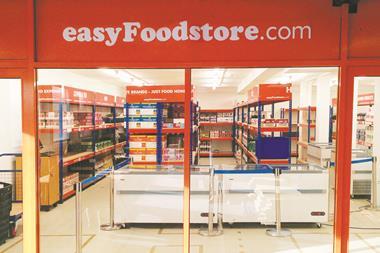
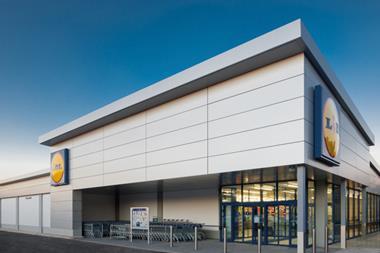
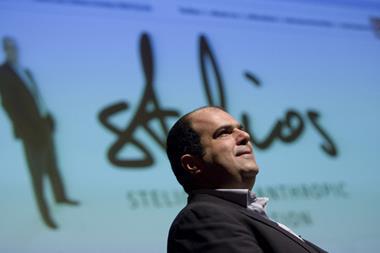
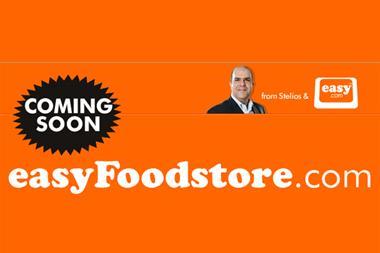





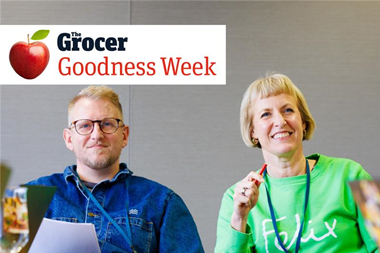


No comments yet